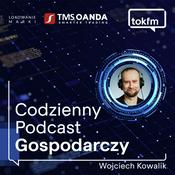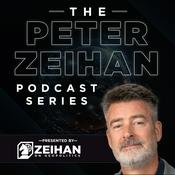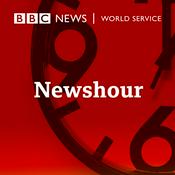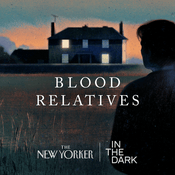1287 odcinków
- Tucker Carlson has long been a standard-bearer for far-right views, such as the racist conspiracy theory known as the “great replacement.” He recently did a chatty interview with the white supremacist Nick Fuentes, an admirer of Hitler. And yet, Carlson started out as a respected, well-connected, albeit contrarian, political journalist. Jason Zengerle, who recently joined The New Yorker as a staff writer, talks with David Remnick about his new book, “Hated by All the Right People: Tucker Carlson and the Unraveling of the Conservative Mind.” They trace how Carlson’s sense of personal resentment toward the establishment grew; how launching his own website radicalized his politics in the years before MAGA; and his political ambitions as a potential heir to Donald Trump. “I think, if Tucker Carlson concludes that J. D. Vance can’t get elected President, maybe he has to do it himself,” Zengerle says. “So much of politics now is just being a media figure and being an entertainer. And Tucker does those things very well. . . . I think our politics are at a place where that really doesn’t seem as outrageous as it would have even just a couple years ago.”
This segment originally aired on January 23, 2025.
The Political Scene draws on the reporting and analysis found in The New Yorker for lively conversations about the big questions in American politics. Join the magazine’s writers and editors as they put into context the latest news—about elections, the economy, the White House, the Supreme Court, and much more. New episodes are available three times a week.
Tune in to The Political Scene wherever you get your podcasts.
Learn about your ad choices: dovetail.prx.org/ad-choices - The Washington Roundtable discusses the upcoming State of the Union address and the public’s shift against Donald Trump on two of his signature issues: the economy and immigration. What pitch might Trump make for himself and the Republican Party heading into the midterms? “On the economy, he’s in the same fix Biden was in,” the staff writer Jane Mayer says. “He's trying to yell at people and tell them, ‘You are better off than you think you are,’ and that, we know, doesn't work.” Plus, the group examines what the retirement of Republican Marjorie Taylor Greene from Congress and what the Democratic Governor Gavin Newsom’s opposition to a wealth tax in California can tell us about ideological fissures within both parties.
This week’s reading:
“The E.P.A. Rescinds a Landmark Finding,” by Bill McKibben
“The Chaos of an ICE Detention,” by Jordan Salama
“Presidents’ Days: From Obama to Trump,” by David Remnick
“Trump Is Still Deporting People Wherever He Wants,” by Isaac Chotiner
“The Jeffrey Epstein Files Are Peter Mandelson’s Final Disgrace,” by John Cassidy
“Zohran Mamdani, the Everywhere Mayor,” by Molly Fischer
The Political Scene draws on the reporting and analysis found in The New Yorker for lively conversations about the big questions in American politics. Join the magazine’s writers and editors as they put into context the latest news—about elections, the economy, the White House, the Supreme Court, and much more. New episodes are available three times a week.
Tune in to The Political Scene wherever you get your podcasts.
Learn about your ad choices: dovetail.prx.org/ad-choices - In January, the Justice Department released over three million documents, including many redacted e-mails, related to Jeffrey Epstein. “Should we share the Julie Brown text with Alan [Dershowitz],” Epstein wrote in one note to a lawyer. “She is going to start trouble. Asking for victims etc.” Brown’s reporting on Epstein for the Miami Herald, and her revelations about the federal plea deal he received, had an enormous impact on public perception of Epstein and his ties to Trump. Brown joins David Remnick to discuss the latest tranche of redacted e-mails, which show, as she reported, that Trump knew about his friend’s crimes far earlier than he has admitted. Brown and Remnick also talk about Epstein’s relationship with Commerce Secretary Howard Lutnick, and why she does not believe that Epstein died by suicide.
The Political Scene draws on the reporting and analysis found in The New Yorker for lively conversations about the big questions in American politics. Join the magazine’s writers and editors as they put into context the latest news—about elections, the economy, the White House, the Supreme Court, and much more. New episodes are available three times a week.
Tune in to The Political Scene wherever you get your podcasts.
Learn about your ad choices: dovetail.prx.org/ad-choices - The Washington Roundtable discusses Donald Trump’s recent “explosion of the ego” and tendency toward megalomania, and they consider how the evolution of autocratic regimes in history can help us to predict how the rest of his Presidency may unfold. They are joined by Ruth Ben-Ghiat, a professor of history and Italian studies at New York University, who is the author of “Strongmen: Mussolini to the Present.” The group looks at how, as autocrats’ popularity decreases—as Trump’s has recently in the polls—these figures develop paranoia and entrench themselves in untenable positions, a phenomenon called “autocratic backfire.” “The key is that they end up constructing a kind of echo chamber. And so they overestimate their own abilities,” Ben-Ghiat says. “They start to believe their own propaganda.”
This week’s reading:
“ ‘If We Don’t Have Free Speech, Then We Just Don’t Have a Free Country,’ ” by Susan B. Glasser
“Pam Bondi’s Contempt for Congress,” by Ruth Marcus
“Is There a Remedy for Presidential Profiteering?,” by David D. Kirkpatrick
“What Does Xi Jinping Want?” by Isaac Chotiner
“Bad Bunny’s All-American Super Bowl Halftime Show,” by Kelefa Sanneh
“Jeffrey Epstein’s Bonfire of the Élites,” by John Cassidy
The Political Scene draws on the reporting and analysis found in The New Yorker for lively conversations about the big questions in American politics. Join the magazine’s writers and editors as they put into context the latest news—about elections, the economy, the White House, the Supreme Court, and much more. New episodes are available three times a week.
Tune in to The Political Scene wherever you get your podcasts.
Learn about your ad choices: dovetail.prx.org/ad-choices - The New Yorker staff writer Gideon Lewis-Kraus joins Tyler Foggatt to discuss his reporting on Anthropic, the artificial-intelligence company behind the large language model Claude. They talk about Lewis-Kraus’s visits to the company’s San Francisco headquarters, what drew him to its research on interpretability and model behavior, and how its founding by former OpenAI leaders reflects deeper fissures within the A.I. industry. They also examine what “A.I. safety” looks like in theory and in practice, the range of views among rank-and-file employees about the technology’s future, and whether the company’s commitment to building safe and ethical systems can endure amid the pressures to scale and compete.
This week’s reading:
“What Is Claude? Anthropic Doesn’t Know, Either,” by Gideon Lewis-Kraus
“Is There a Remedy for Presidential Profiteering?,” by David D. Kirkpatrick
“Bad Bunny’s All-American Super Bowl Halftime Show,” by Kelefa Sanneh
“Listening to Joe Rogan,” by David Remnick
“What Do We Want from a Protest Song?,” by Mitch Therieau
The Political Scene draws on the reporting and analysis found in The New Yorker for lively conversations about the big questions in American politics. Join the magazine’s writers and editors as they put into context the latest news—about elections, the economy, the White House, the Supreme Court, and much more. New episodes are available three times a week.
Tune in to The Political Scene wherever you get your podcasts.
Learn about your ad choices: dovetail.prx.org/ad-choices
Więcej Wiadomości podcastów
Trendy w podcaście Wiadomości
O The Political Scene | The New Yorker
Join The New Yorker’s writers and editors for reporting, insight, and analysis of the most pressing political issues of our time. On Mondays, David Remnick, the editor of The New Yorker, presents conversations and feature stories about current events. On Wednesdays, the senior editor Tyler Foggatt goes deep on a consequential political story via far-reaching interviews with staff writers and outside experts. And, on Fridays, the staff writers Susan B. Glasser, Jane Mayer, and Evan Osnos discuss the latest developments in Washington and beyond, offering an encompassing understanding of this moment in American politics.
Strona internetowa podcastuSłuchaj The Political Scene | The New Yorker, Za Rubieżą. Historia i polityka i wielu innych podcastów z całego świata dzięki aplikacji radio.pl
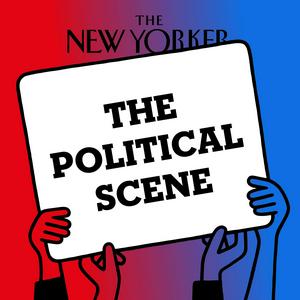
Uzyskaj bezpłatną aplikację radio.pl
- Stacje i podcasty do zakładek
- Strumieniuj przez Wi-Fi lub Bluetooth
- Obsługuje Carplay & Android Auto
- Jeszcze więcej funkcjonalności
Uzyskaj bezpłatną aplikację radio.pl
- Stacje i podcasty do zakładek
- Strumieniuj przez Wi-Fi lub Bluetooth
- Obsługuje Carplay & Android Auto
- Jeszcze więcej funkcjonalności


The Political Scene | The New Yorker
Zeskanuj kod,
pobierz aplikację,
zacznij słuchać.
pobierz aplikację,
zacznij słuchać.













